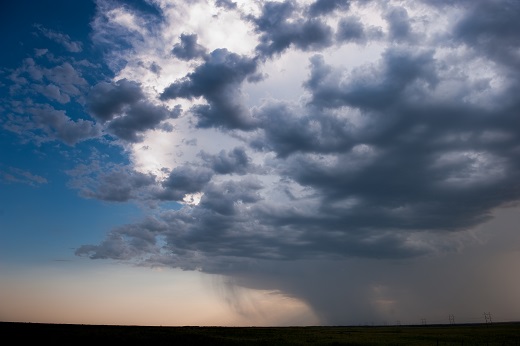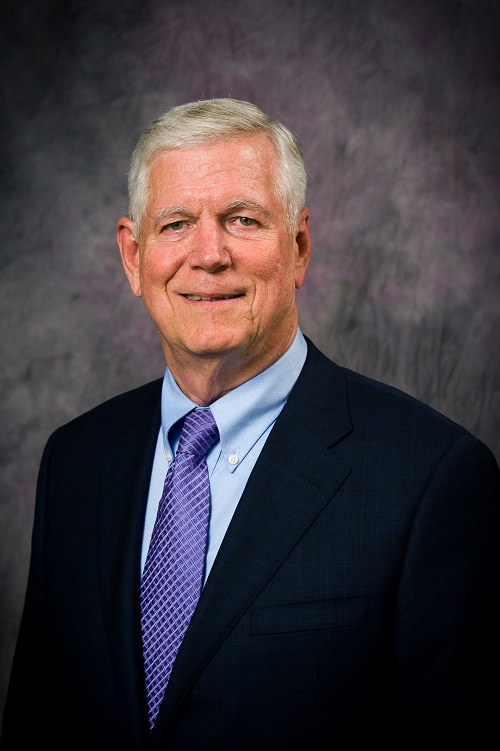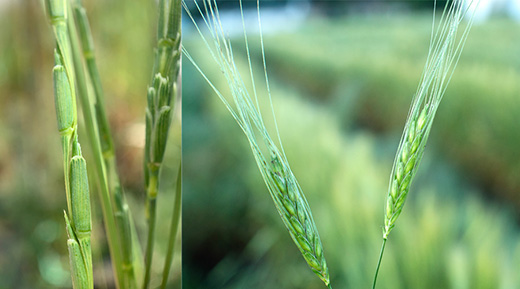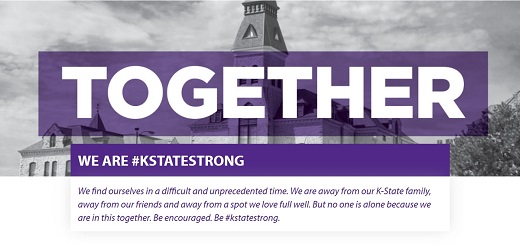07/01/20
K-State Current - July 1, 2020
K-State Current is a weekly news update for the Kansas Board of Regents to apprise the Regents on a few of the many successes and achievements made by K-State faculty, staff and students.
K-State News
Visit K-State’s “We Are #KStateStrong” site to view brief videos designed to keep the K-State family engaged, connected and inspired during these challenging times.
A message from President Myers
 Dear K-State Community,
Dear K-State Community,
Recent national events and #BlackAtKState bring into clear focus how much work needs to be done to address racial and social injustice issues at our university. The university has committed to developing meaningful, measurable action plans with concrete steps.
These proposed steps take into account the reality that, as a governmental entity, we must operate within the law. There have been many calls for us to expel a student who posted racist messages on social media, and while these messages are disrespectful and abhorrent, we cannot violate the law.
What we can do is use these incidents as a catalyst to more crisply define the way we will work to stop hate at K-State and combat racism on our campuses. These initial steps have been based on the many voices heard so far, we will continue to listen and develop actions based on the many voices in our community.
Toward creating a more inclusive K-State, we commit to the following action steps.
Student-Related Action Steps:
- Create a Student Ombudsperson Office in collaboration between the Provost, Chief Diversity and Inclusion Officer, and Vice President for Student Life to advocate for students experiencing a campus climate concern.
- Establish a work group to analyze and make recommendations regarding all university policies, including discrimination and harassment policies and the Student Code of Conduct, with the goal of identifying and addressing institutional bias and barriers through an anti-racist lens.
- Increase recruitment efforts with the aim of raising enrollment of students of color to meet or exceed the state of Kansas demographics.
- Increase efforts to raise retention and graduation rates of students of color with annual measurable goals.
- Increase the amount of need-based scholarships with annual measurable goals. Additionally, this next fiscal year’s voluntary salary reductions from administrative leaders will go directly towards need-based scholarships for students.
- Improve the process for receiving complaints of discrimination.
- Develop a policy on social media usage for students that balances our institutional values and free speech. Currently one exists for faculty and staff.
- Initiate a “Truth, Racial Healing, and Transformation” campaign through Student Life modeled after the Association of American Colleges and Universities’ program to develop and track progress on co-curricular equity initiatives.
Faculty-Staff Related Action Steps:
- Increase hiring and retention efforts for faculty and staff of color with the goal of meeting or exceeding relevant local, state, and national labor market demographics.
- Work with the colleges and faculty to adopt the U.S. multicultural overlay as a university wide model.
- Develop and offer mandatory cultural competency workshops for faculty and staff.
A publicly available dashboard for measuring progress and identifying accountable university leaders for each of the above action steps will be developed. These commitments are an initial response and further action steps will be encouraged to be added by additional university units and through our shared governance process.
We will ensure students, faculty and staff of color are at the table along with other underrepresented groups as the above action steps move forward. Work on this plan begins immediately and progress will be reported monthly to the university community.
Richard B. Myers
President of Kansas State University
Kansas State University named best college in Kansas for LGBTQ+ students
 Kansas State University is recognized as the most LGBTQ-friendly college in Kansas, according to BestColleges and Campus Pride's 2020 college rankings in recognition and celebration of Pride Month.
Kansas State University is recognized as the most LGBTQ-friendly college in Kansas, according to BestColleges and Campus Pride's 2020 college rankings in recognition and celebration of Pride Month.
 The Best Colleges for LGBTQ+ Students in Each State identifies schools that are culturally inclusive, affordable and closer in proximity to their geographic location. The ranking also includes K-State's five-star Campus Pride Index score, a comprehensive national rating system that measures LGBTQ-friendly campus life.
The Best Colleges for LGBTQ+ Students in Each State identifies schools that are culturally inclusive, affordable and closer in proximity to their geographic location. The ranking also includes K-State's five-star Campus Pride Index score, a comprehensive national rating system that measures LGBTQ-friendly campus life.
Noted in the ranking is the university's LGBT Resource Center, which promotes the Sexuality and Gender Alliance, or SAGA — the longest-running LGBTQ+ organization on campus. SAGA hosts educational and community-building events for all students.
"It is always an honor to have the LGBT Resource Center recognized for the ongoing efforts to provide a safe and affirming environment for our campus community," said Brandon Haddock, coordinator of the center. "This recognition is made possible through the commitment of our LGBTQ students, faculty, staff, community members and our alumni to work toward equity for all."
The university also received full marks in areas such as LGBTQ+ support and institutional commitment, counseling and health, campus safety, and recruitment and retention efforts. In addition to SAGA, campus organizations include the LGBTQ* Faculty and Staff Alliance, which supports and advocates for sexuality and gender identity-based issues; oSTEM — Out in Science Technology Engineering and Mathematics student organization; and the Gender Collective, a group for students who identify as transgender, cross-gender, intersex, or otherwise divergent from their birth-assigned gender that invites students and faculty to participate in outreach and educational efforts.
Kansas State University also was listed among Campus Pride's 2017 Top 25 schools in the nation for LGBTQ inclusion, and the 2018 30 Best of the Best LGBTQ-friendly colleges and universities.
"It is a tremendous honor for K-State to continue to be recognized nationally for the work our supportive faculty, staff, students and alumni have done and continue to do in helping foster an inclusive and affirming campus where people can be their authentic selves," said Thomas Lane, vice president for student life and dean of students.
K-State Faculty Highlights
Mining wheat's wild side for global food security
 Aegilops speltoides, left, and Triticum dicoccoides, or wild Emmer, growing in the WGRC Industry-University Cooperative Research Center field trial at the K-State Rocky Ford Field Station in Manhattan.
Aegilops speltoides, left, and Triticum dicoccoides, or wild Emmer, growing in the WGRC Industry-University Cooperative Research Center field trial at the K-State Rocky Ford Field Station in Manhattan.
A Kansas State University wheat geneticist is receiving nearly $1 million from the U.S. Department of Agriculture's National Institute of Food and Agriculture, through its Agriculture and Food Research Initiative, for two projects to improve the genetic diversity of wheat.
Modern wheat is historically a genetically narrow species. But centuries of focused breeding to increase yields and performance stability has further reduced genetic diversity in most modern wheat cultivars. As the human population increases and climates become more variable, the lack of genetic diversity in modern wheat has the potential to compromise global food security, according to Jesse Poland, associate professor of plant pathology and director of the Wheat Genetics Resource Center Industry-University Cooperative Research Center at K-State.
Poland will use the grants to mine wheat wild relatives for genes that increase disease resistance, stress tolerance and yield potential. He will look far back into wheat's family tree for solutions at two reservoirs of untapped genetic diversity: Aegilops speltoides and Triticum dicoccoides, also known as wild Emmer.
"These new projects supported through the National Institute of Food and Agriculture are really building on decades of work and genetic resources assembled in the Wheat Genetics Resource Center," Poland said. "Through our current industry partnerships in the Industry-University Cooperative Research Center, we have further strengthened the value of the germplasm collection. K-State is a great place for this work to happen and be successful because we can directly connect the work on wild wheat with companies and breeders delivering the new germplasm to farmers."
The first project is a collaboration between K-State, 2Blades Foundation, the University of Minnesota and the John Innes Center. This team will leverage the extensive Wheat Genetics Resource Center, or WGRC, collection of wild Emmer to resequence the Emmer genome and identify genes providing resistance to stripe, leaf and stem rust — three diseases that cause nearly $3 billion in damage to global wheat crops annually.
The second collaboration brings K-State plant pathology researchers Bernd Friebe and Dal-Hoe Koo, both of the Wheat Genetics Resource Center, together with Poland and Assaf Distelfeld of the University of Haifa in Israel, to unlock genetic diversity in Ae. Speltoides, a distant wild relative of wheat with huge diversity. Their work will better characterize the collection of Ae. Speltoides and use this information to identify genetic segments transferred into wheat with the aim of making better genetic markers for wheat breeders to use.
Together these projects bridge resources and expertise across the globe, spanning from the center of origin of wheat to the center of contemporary wheat production, Poland said. The genetic resources developed across these partnerships will inform rapid development of improved of wheat varieties.
"Overall, these projects really complement the ongoing work of the WGRC to provide robust genetic resources to breeders and see this novel genetic diversity transferred to breeding companies and delivered to farmers," Poland said. "With these exciting international partnerships we can move even faster."
Wang receives $800,000 NASA grant to monitor global surface water storage and discharge
 Jida Wang, an assistant professor in the Department of Geography and Geospatial Sciences, recently received a NASA Earth Science Division grant totaling $799,644 for four years to investigate global surface hydrology.
Jida Wang, an assistant professor in the Department of Geography and Geospatial Sciences, recently received a NASA Earth Science Division grant totaling $799,644 for four years to investigate global surface hydrology.
This project, “Integrating reservoirs into SWOT’s global surface water storage and discharge monitoring,” will contribute to data, algorithm and scientific support for the Surface Water and Ocean Topography, or SWOT, mission, NASA's next major satellite mission in hydrology, scheduled for launch in 2022.
Wang will carry out this research with George Allen, co-investigator at Texas A&M; Yongwei Sheng, co-investigator at UCLA; and Jean-François Crétaux, international collaborator CNES; together with collaborative support from other members of the Surface Water and Ocean Topography Science Team.
K-State Student News
SORT steps up to help with COVID-19 efforts in Riley County
 Kansas State University College of Veterinary Medicine veterinary students and Master of Public Health students are helping the Riley County Health Department with its COVID-19 efforts as members of the Student Outbreak Response Team, or SORT.
Kansas State University College of Veterinary Medicine veterinary students and Master of Public Health students are helping the Riley County Health Department with its COVID-19 efforts as members of the Student Outbreak Response Team, or SORT.
Andrew Adams, public health emergency preparedness coordinator for the Riley County Health Department, said SORT was created with the help of a K-State Master of Public Health student in 2017 to serve as a part of the health department's surge capacity protocol for disease investigations and outbreak control and has been a vital part of the public health response to COVID-19 in Riley County. SORT is an official student organization at K-State.
Second-year veterinary student Maya Djordjevich, Bethesda, Maryland, serves as vice president of SORT. She said she never expected to be called to volunteer on the front lines of a global pandemic as a member of SORT but is grateful for the learning opportunity.
"Before the COVID-19 pandemic, I scheduled and hosted outbreak response training with Andrew Adams and our members," Djordjevich said. "I was thinking we would be working more along the lines of a local foodborne outbreak or natural disaster as opposed to a viral pandemic."
Djordjevich volunteers her time twice weekly conducting contact tracing interviews with individuals, hospitals and businesses. Contact tracing involves gathering symptoms, travel habits and locations visited before and after onset of symptoms of those who are affected by the virus, as well as any names and contact information for their close contacts.
"I am empowered by the vital work that I am doing with the knowledge that contact tracing is an integral factor in reopening communities and businesses," Djordjevich said. "Volunteering with the Riley County Health Department has furthered my interest in public health. I will be entering a Master of Public Health program in fall 2020."
Second-year veterinary student Molly Allison, Overland Park, said learning how to conduct contract tracing has been a valuable experience. She said it has allowed her and other student volunteers to learn and grow in the public health aspects of their education while making an impact within the community.
"For myself, conducting contact tracing has not only allowed me to become more acquainted with the many jobs our health department does to ensure our health and safety as a community, but it has also given me insight on how to provide public health education and how to effectively communicate with people who are looking for answers and provide some encouragement to those who have and are currently struggling with this disease,: Allison said. “All of these things are powerful and speak to the impact of SORT's partnership with the Riley County Health Department."
Adams said the health department is thankful for the help members of SORT have provided.
"Having a trained cadre of volunteers ready to jump in at a moment's notice has been hugely impactful," Adams said. "The students are helping the Riley County Health Department to quickly contact confirmed cases of COVID-19 and identify their close contacts — all as a part of controlling the pandemic locally and helping to flatten the curve, raise the bar and push past the negative impacts of COVID."
Students interested in participating can contact Ellyn Mulcahy, director of the K-State Master of Public Health program and SORT departmental advisor, at emulcahy@vet.k-state.edu.
